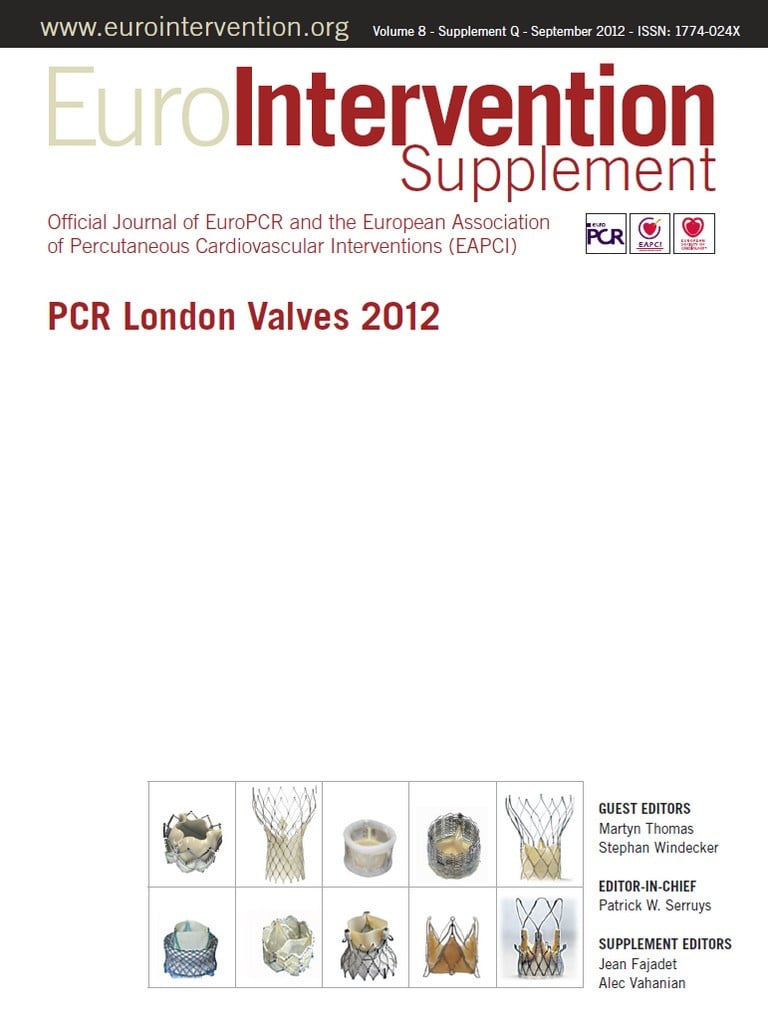![]()
Treatment and consequences of regurgitation during transcatheter valve therapies
Impact of post-procedural aortic regurgitation on mortality after TAVI
Aims: Post-procedural aortic regurgitation (post-AR) is known to be associated with poor short-term to mid-term outcome after transcatheter aortic valve implantation (TAVI). The aim of this study was to clarify the impact of mild post-AR on clinical outcomes.
Methods and results: We compared clinical outcomes in 400 consecutive TAVI recipients according to post-AR grade: none (group 1=74.8%), mild (group 2=22.2%) or moderate to severe (group 3=3.0%). The mean age was similar in the three groups (83.4±6.1 years) as well as logistic EuroSCORE (22.5±11.4, 24.5±11.6 and 21.5±9.4%, p=0.28) and annulus size (22.0±1.8, 22.2±2.1 and 22.5±2.1 mm, p=0.53). The Edwards valve was the most frequently used in group 1 compared to groups 2 and 3 (89.3, 78.7 and 83.3%, p=0.03) and the implanted valve size was similar in all groups (25.6±2.0, 25.4±2.2 and 25.5±2.2 mm, respectively, p=0.69). Post-dilatation was required more frequently in group 3 (4.7, 24.1 and 50.0% respectively, p<0.01). Post-procedural increase in mitral regurgitation was in line with the post-AR grade (0.78±0.73, 1.22±0.80 and 1.89±0.78, respectively, p<0.01). Despite the absence of difference in 30-day mortality, longer-term outcome was significantly poorer in patients with mild AR than in those with no AR (log-rank p<0.01), albeit better than in patients with moderate to severe AR regardless of TAVI type and left ventricular function. In group 2 (mild, post-AR), patients with no pre-procedural AR had worse outcome compared to those who had pre-procedural AR (log-rank p=0.01). Post-AR was also identified as an independent predictor of mid-term to long-term mortality (HR1.68, 95% CI: 1.21-1.44, p<0.01).
Conclusions: Mild AR post TAVI is associated with a worse outcome when compared to no AR. Careful valve selection and post-dilatation when required to avoid mild post-AR might contribute to improved clinical outcome after TAVI.

